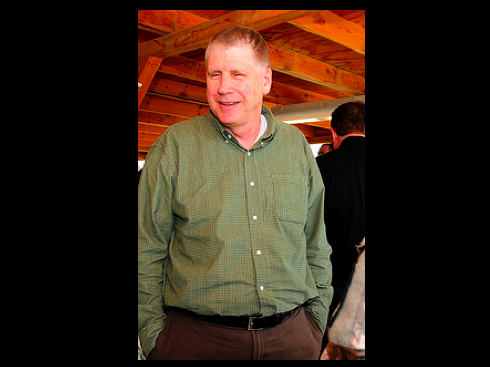New polling released yesterday and today by Public Policy Polling (D) provides some solid, empirical evidence that a vote against the health care bill may be the better bet for swing-seat Democrats. Or at least, that seems to be the message for freshman Rep. Larry Kissell (D-NC), who voted against the bill.
The new polls show that Kissell easily leads several potential Republican opponents, by margins of 14-18 points. He also leads a potential Democratic primary challenger, 2002 nominee Chris Kouri, by 49%-15%. But a close look at the polls shows just how people think he voted on the bill — and how this could be affecting their decisions about him.
It turns out that a 44% plurality of the likely general election electorate falsely believe that Kissell voted for the bill, with only 29% giving the correct answer that he voted against it, and 28% are unsure. (This might come as a huge shock, but voters can often make their decisions based on false beliefs and information.) I asked PPP for some customized cross-tabs — which reveal that among people who think he voted for it the race is very close, with a landslide lead among the folks who think he voted against it.
The false belief on Kissell’s position is spread fairly evenly across partisan identifications, though not perfectly so: Democrats think he voted for it by 41%-28%, Republicans think so by 48%-30%, and independents say so by 45%-27%.
Kissell’s overall approval rating is 45%, with 30% disapproval. According to the custom cross-tabs, people who think he voted yes are only at 44%-33%, while people who say he voted no approve of him by a wider 52%-36%. Even among Democratic primary voters, Kissell’s popularity isn’t heavily damaged. Among Democratic primary voters who think he voted for the poll, his approval is 67%-14%, compared to 55%-36% who say he voted against it.
The difference becomes much sharper in the general election match-ups. Among people who think Kissell voted yes, he is in a dead heat with all four Republicans, each of them in the upper 40’s. But among the voters who say he voted against it, Kissell has leads of nearly two to one, with him in the low 60’s and each of the opponents in the low 30’s. Among those who don’t have an answer as to how he voted, Kissell’s support is in the upper 50’s, with the opponents in the low 30’s.
Simply put, liberal voters who like the bill will vote for Kissell anyway, and he wins over some conservatives. The race is close among the plurality who say he voted for the bill, with him put ahead by landslide leads among the people who know he voted against it.
I asked PPP communications director Tom Jensen whether there was a direct causation: Does thinking Kissell voted for the bill make a person less likely to support him — or, because the distribution isn’t perfectly uniform, and conservative voters are a little bit more likely to think he voted for it, is he simply polling badly among people who never would have supported him anyway?
“For the most part people who think he voted for it are casual followers of politics who are going to follow the party line — Democratic or Republican — regardless of what’s really going on because they don’t pay that much attention,” Jensen said. “But Kissell’s getting a decent amount of support from Republicans and independents who know he voted against the bill, and Democrats who know he voted against it aren’t holding it against him at least when it comes to the match ups against the Republicans. So on balance he’s coming out ahead.”






